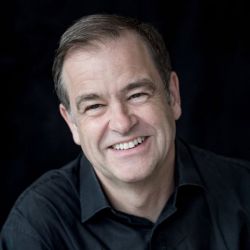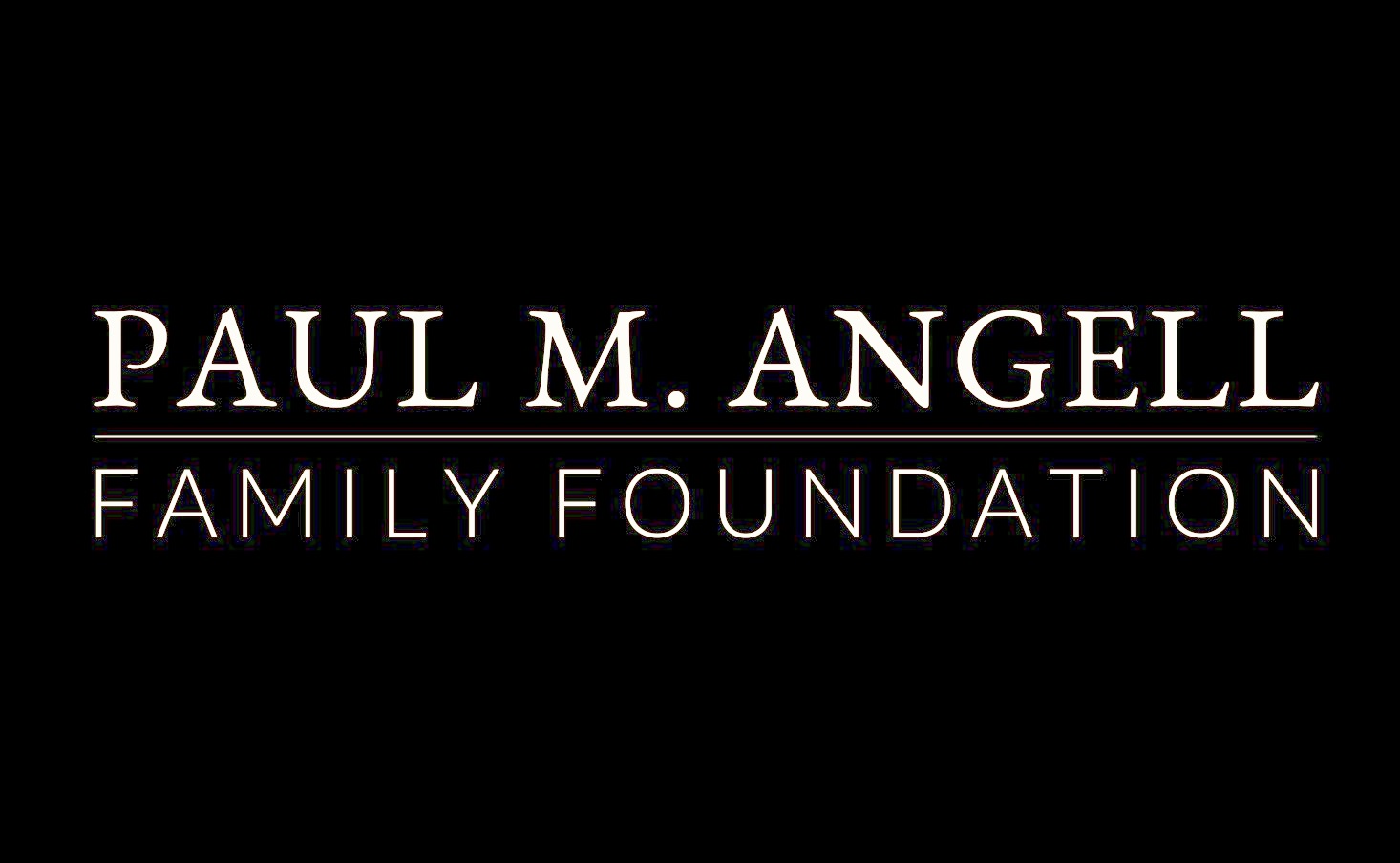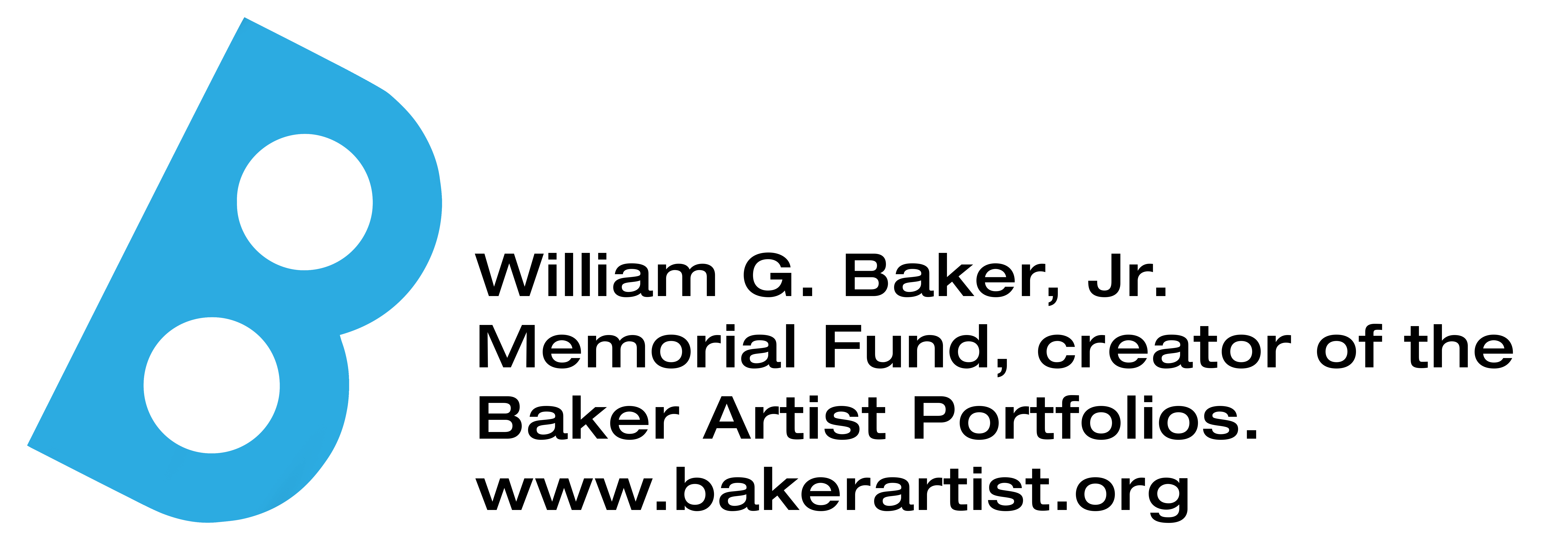Ian Bostridge, tenor
Julius Drake, piano
The Helen Coplan Harrison Concert
Location: Shriver Hall
Acclaimed tenor Ian Bostridge, renowned for his lyric gifts and “instinct for conveying meaning and emotion with disarming clarity” (The Guardian), performs music set to profound texts from his native England. This signature program features a kaleidoscope of composers inspired by William Shakespeare alongside Bostridge’s heartfelt rendition of Britten’s transcendent Holy Sonnets, with texts by poet John Donne. Master collaborative pianist Julius Drake joins for this imaginative collection.
"Beautiful timbre and good power." —Giornale della Musica
What You'll Hear
About the sponsor
This concert endowment was established in 2002 in honor of longtime Shriver Hall Concert Series Board member Dr. Helen Harrison, a gift by her sons Dr. Stephen Harrison and Dr. Richard Harrison and their families. Helen Harrison joined the Shriver Hall Concert Series Board of Directors in November 1973 at the invitation of founding president Ernest Bueding. Dr. Harrison served as an active and influential member of the Board until 2001, and she was responsible for bringing many new members to the Board, including chair emerita Jephta Drachman. As a scientist, Dr. Harrison shared the prestigious Howland Prize with her husband, Dr. Harold Harrison, for research done at The Johns Hopkins University School of Medicine.

Ian Bostridge
Ian Bostridge’s extraordinary international career has taken him to the foremost concert halls, orchestras and opera houses in the world. Synonymous with the works of Schubert and Britten, his recital career has taken him to the Salzburg, Edinburgh, Munich, Vienna, Aldeburgh and Schwarzenberg Schubertiade Festivals and to the main stages of Carnegie Hall, the Bayerische Staatsoper, La Monnaie and Teatro alla Scala. In opera, Ian has received particular praise for his interpretation of Aschenbach Death in Venice at the Deutsche Oper & Peter Quint The Turn of the Screw for Teatro alla Scala. His recordings have won all the major international record prizes and been nominated for 15 Grammys.
Ian has held artistic residencies at the Vienna Konzerthaus and Schwarzenberg Schubertiade, the Barbican, the Luxembourg Philharmonie, the Wigmore Hall and Hamburg Laeiszhalle. Ian has also participated in a Carte-Blanche series with Thomas Quasthoff at the Amsterdam Concertgebouw and a Perspectives series at Carnegie Hall and the inaugural Artistic Residency with the Seoul Philharmonic Orchestra. Ian has worked with the Berliner Philharmoniker, Wiener Philharmoniker, Chicago, Boston, London and BBC Symphony orchestras, the London, New York, Los Angeles Philharmonic orchestras, the Rotterdam Philharmonisch Orkest, Accademia di Santa Cecilia and Royal Concertgebouw Orchestra under Sir Simon Rattle, Sir Colin Davis, Sir Andrew Davis, Seiji Ozawa, Sir Antonio Pappano, Riccardo Muti, Mstislav Rostropovich, Daniel Barenboim, Daniel Harding and Donald Runnicles.
His many recordings have won all the major international record prizes and been nominated for 15 Grammys. His recording for Pentatone of Schubert’s Winterreise with Thomas Adès won the Vocal Recording of the Year 2020 in the International Classical Music Awards. Recent recordings include Respighi Songs and Die schöne Mullerin with Saskia Giorgini for Pentatone, Tormento d’Amore, Shakespeare songs (Grammy Award, 2017) and Requiem: The Pity of War with Pappano for Warner Classics, as well as Berlioz’s Les Nuits d'Eté, Ravel’s Shéhérazade and Debussy’s Le Livre de Baudelaire arr. John Adams with Ludovic Morlot and the Seattle Symphony Orchestra. The 22/23 season season saw the release Ian’s latest two albums through Pentatone: The Folly of Desire with Brad Mehldau and Schwanengesang with Lars Vogt.
His book Schubert's Winter Journey: Anatomy of an Obsession (The Pol Roger Duff Cooper Prize, 2016) was published by Faber and Faber in the UK and Knopf in the USA in 2014. In the 20/21 season Ian gave a lecture series for the University of Chicago and took up the position of Visiting Professor at the Munich Hochschule für Musik und Theater. Ian’s most recent book, Song and Self, was published by Faber and Faber in 2023. Ian was a fellow in history at Corpus Christi College, Oxford (1992-5) and in 2001 was elected an honorary fellow of the college. In 2003 he was made an Honorary Doctor of Music by the University of St Andrews and in 2010 he was made an honorary fellow of St John's College Oxford. He was made a CBE in the 2004 New Year’s Honours. In 2014 he was Humanites Professor of Classical Music at the University of Oxford.
"Bostridge’s mellifluous line and careful inflection of key words [are] always a delight"- The Guardian

Julius Drake
The pianist Julius Drake lives in London and enjoys an international reputation as one of the finest instrumentalists in his field, collaborating with many of the world's leading artists, both in recital and on disc. His passionate interest in song has led to invitations to devise song series for Wigmore Hall, London; The Concertgebouw, Amsterdam; 92nd Street Y, New York; and the Pierre Boulez Saal, Berlin. He curates an annual series of song recitals - Julius Drake and Friends - in the historic Middle Temple Hall in London. Julius Drake is Professor of Collaborative Piano at the Guildhall School of Music in London and he is regularly invited to give masterclasses worldwide.
Julius Drake's many recordings include a widely acclaimed series with Gerald Finley for Hyperion Records of which 'Songs by Samuel Barber', 'Schumann: Dichterliebe & other Heine Settings' and 'Britten: Songs & Proverbs of William Blake' won the 2007. 2009 and 2011 Gramophone Awards; recordings with Ian Bostridge and Alice Coote for EMI; with Joyce DiDonato, Lorraine Hunt Lieberson and Matthew Polenzani for Wigmore Live; and with Anna Prohaska for Alpha. Julius Drake's recording of Janáček's 'The Diary of One Who Disappeard', with tenor Nicky Spence and mezzo-soprano Václava Housková for Hyperion Records, won both the Gramophone and the BBC Music Magazine Awards in 2020.
Concerts this season include recitals at La Scala, Milan and the Teatro de la Zarzuela, Madrid with Ludovic Tézier; return visits to the Boulez Saal Berlin for the series ' Lied und Lyrik'; a recital tour in the USA with Ian Bostridge; the complete Mahler songs in five recitals in the Mahler Festival at the Concertgebouw, Amsterdam; recitals at the Opera Liceu in Barcelona with Gerald Finley, Sarah Connolly and Irene Theorin; return visits to the Chamber Music Festivals of Sante Fe, West Cork and Oxford; concerts in Berlin and at the Aldeburgh Festival with André Schuen; piano duet recitals with Elisabeth Leonskaja in Austria, including at the Schubertiade Festival; recitals in the USA and Europe with Fleur Barron, Mercedes Gancedo, Christopher Prégardien, Julia Kleiter Anna Prohaska and Roderick Williams; and at Wigmore Hall, London the Season Opening concert celebrating the Fauré Anniversary as well as recitals with Alice Coote, Stuart Jackson, Sofia Fomina and Brindley Sherratt.
“For my money, this inspired accompanist is now the best in the business.” -New York Magazine
John Dowland (1563-1626)
"In darkness let me dwell"
View NotesThough the first half of Ian Bostridge’s program is mostly devoted to songs setting verse by William Shakespeare, the first song Bostridge will perform is by one of Shakespeare’s exact contemporaries, the renowned composer and lutenist John Dowland. Melancholy songs about love lost or rejected were the fashion of the day in England, but he personally knew the black world of depression and expressed it in music of unprecedented strength and originality. Setting verse Dowland wrote himself, “In Darkness Let Me Dwell” is not only his finest song but one of the greatest ever written in the English language. Composed around 1610, it looks far ahead of its time in its daring use of harmony, dissonance, and rhythmic freedom to express its words of utter desolation.
© Janet Bedell, 2024
Gerald Finzi (1901-1956)
Let Us Garlands Bring, Op. 18
View NotesA profound sensitivity to poetry—and especially that coming from his native England—was the spark that lit Gerald Finzi’s career as a composer. Born into a wealthy family of Italian and Jewish descent, he eventually became a friend and protégé of composer Ralph Vaughan Williams. During the 1930s, Finzi moved to the English countryside, where he amassed a 3,000-book library of English poetry, philosophy, and literature, the inspiration for many of his compositions. Such is the case with Let Us Garlands Bring, a group of five songs setting verse drawn from four of Shakespeare’s plays. Individually composed between 1929 and 1942, they were assembled and dedicated to Vaughan Williams on the occasion of his 70th birthday in October 1942.
One of the most musical of Shakespeare’s plays, Twelfth Night opens with one of the major characters, Duke Orsino, declaring, “If music be the food of love, play on!” Songs abound in this superb comedy, usually performed by the court jester Feste. In the first song, he appeals to Orsino’s morbid nature with “Come away, death.” In B minor, this song sways solemnly atop a tolling motive in the piano. The cycle’s fourth song, “O mistress mine,” is also sung by Feste but this time to listeners desiring lighter fare.
From the early comedy The Two Gentlemen of Verona, “Who is Silvia?” is one of Shakespeare’s most frequently set poems. Proteus and Valentine, the eponymous two gentlemen, have become entangled in a rivalry over Silvia, the beloved of Valentine. Unfortunately, Proteus chooses to sing this spirited song in the presence of Julia, his former betrothed, who is not amused. “Fear no more the heat o’ the sun” comes from Cymbeline, the most rarely performed of Shakespeare’s four last plays that mingle tragedy and comedy. It is a sincere, slightly naïve prayer, sung over a noble chorale in the piano. A song of pure entertainment, “It was a lover and his lass,” comes from the happy closing scenes of the great comedy As You Like It. Plentiful use of syncopation in both the vocal and keyboard parts give this bright song its air of swinging, spontaneous joy.
© Janet Bedell, 2024
Franz Schubert (1797-1828)
“An Sylvia,” D. 891
View NotesOutside the English-speaking lands, no country has embraced Shakespeare as fervently as Germany. August Schlegel’s excellent translations published in the early 1800s were largely responsible. Using additional translations by his friends Eduard von Bauernfeld and Ferdinand Mayerhofer, Schubert wrote three Shakespeare Lieder in 1826; today’s program features two of them. First comes “An Sylvia,” Schubert’s setting in German of the same poem from The Two Gentlemen of Verona we heard from Finzi. The steady, rapid accompaniment gives a wonderful ardor and propulsion to the singer’s beautifully shaped melody. The lovely “Ständchen” (“Hark, hark, the lark”) uses a first verse from Cymbeline, to which Schubert added two more written by his friend Friedrich Reil. This is a classic Schubertian serenade with a winsome earworm of astrophic tune and a charming accompaniment.
© Janet Bedell, 2024
Franz Schubert (1797-1828)
“Ständchen,” D. 889
View NotesOutside the English-speaking lands, no country has embraced Shakespeare as fervently as Germany. August Schlegel’s excellent translations published in the early 1800s were largely responsible. Using additional translations by his friends Eduard von Bauernfeld and Ferdinand Mayerhofer, Schubert wrote three Shakespeare Lieder in 1826; today’s program features two of them. First comes “An Sylvia,” Schubert’s setting in German of the same poem from The Two Gentlemen of Verona we heard from Finzi. The steady, rapid accompaniment gives a wonderful ardor and propulsion to the singer’s beautifully shaped melody. The lovely “Ständchen” (“Hark, hark, the lark”) uses a first verse from Cymbeline, to which Schubert added two more written by his friend Friedrich Reil. This is a classic Schubertian serenade with a winsome earworm of astrophic tune and a charming accompaniment.
© Janet Bedell, 2024
Franz Joseph Haydn (1732-1809)
“She never told her love,” Hob. XXVIa/34
View NotesHaydn’s glorious London period in the1790s produced not only the London Symphonies but also a sheaf of songs in the English language. While there, he became close friends with Anne Hunter, the widow of one of London’s most renowned surgeons. A cultivated woman and poetess, Hunter improved the Austrian composer’s command of English and introduced him to the world of English verse; they collaborated on several song projects, including two sets of English Canzonettas. From the second set of 1795 comes his only setting of Shakespearean verse, “She never told her love” from Twelfth Night. It uses a passage from Act II, in which Viola, disguised as a young page, tells of a perhaps fictional maiden who never revealed her love but pined away with her sentiments unrequited; the story barely conceals her own feelings for Duke Orsino, to whom she is speaking. Beginning with a lengthy, mood-setting piano prelude, Haydn’s song shows a beautiful restraint, gently conveying the young woman’s sorrow.
© Janet Bedell, 2024
Roger Quilter (1877-1953)
“Come away, Death,” Op. 6, No. 1
View NotesThe songs of Roger Quilter may be little known in the U.S., but in England—especially in the period before World War II—they have been immensely popular. Born to a wealthy English family, Quilter followed his own inclinations, studying piano and composition at the Frankfurt Conservatory in Germany. His career immediately took off with his irresistible songs for the English music hall. Quilter turned to songs embedded in Shakespeare’splays several times over his career; his set of Three Shakespeare Songs, Op. 6 was composed in 1905. The first of these is yet another song for the clown Feste in Twelfth Night. Feste is skilled at tuning his music to the company he is with, and the lovesick “Come away, death” matches the mood of Duke Orsino, who is prostrate over his inability to win the heart of Lady Olivia.
© Janet Bedell, 2024
Ivor Gurney (1890-1937)
"Under the Greenwood Tree"
View NotesA pupil of Vaughan Williams, Ivor Gurney lived a tragic life. Both a poet and a composer, he was a casualty of World War I; wounded, gassed, and shell-shocked, he returned to civilian life broken in mind and body and spent years in mental institutions. But his pre-war Five Elizabethan Songs (1913) was a little masterpiece. From it, we’ll hear “Under the Greenwood Tree” from Shakespeare’s pastoral comedy As You Like It, in which a group of nobles are exiled to the forest from the urban court. Their pleasure in this life is captured in this insouciant song, which Gurney sets to piquant, off-the-beat rhythms. Also in this collection is “Sleep” which uses verse by another Elizabethan playwright John Fletcher. Over a hypnotically rocking accompaniment, the poet pleads for sleep to come and, extending his joys in dreams, soothe his sorrows.
© Janet Bedell, 2024
Ivor Gurney (1890-1937)
"Sleep"
View NotesA pupil of Vaughan Williams, Ivor Gurney lived a tragic life. Both a poet and a composer, he was a casualty of World War I; wounded, gassed, and shell-shocked, he returned to civilian life broken in mind and body and spent years in mental institutions. But his pre-war Five Elizabethan Songs (1913) was a little masterpiece. From it, we’ll hear “Under the Greenwood Tree” from Shakespeare’s pastoral comedy As You Like It, in which a group of nobles are exiled to the forest from the urban court. Their pleasure in this life is captured in this insouciant song, which Gurney sets to piquant, off-the-beat rhythms. Also in this collection is “Sleep,” which uses verse by another Elizabethan playwright, John Fletcher. Over a hypnotically rocking accompaniment, the poet pleads for sleep to come and, extending his joys in dreams, soothe his sorrows.
© Janet Bedell, 2024
Erich Korngold (1897-1957)
“Desdemona’s Song,” Op. 31, No. 1
View NotesA wunderkind in early 20th-century Vienna who wrote the highly successful opera Die tote Stadt (The Dead City) when he was in his early twenties, Erich Korngold escaped the rise of the Nazi regime when famed director Max Reinhardt invited him to Hollywood to write the score for his acclaimed film of A Midsummer Night’s Dream. Korngold’s romantic scores then dominated films in the 1930s and ’40s, especially Errol Flynn’s swashbuckling epics. As a sideline, Korngold worked with Reinhardt in the director’s studio for training young actors, where he created a number of songs for Shakespeare’s plays. “Desdemona’s song” is the famous “Willow Song” Desdemona sings just before Othello arrives in her bed chamber and kills her. Korngold gives it a lovely, mournful setting, employing modal harmonies harkening back to Elizabethan melodies. Earlier in the program, we heard Finzi’s treatment of Feste the Clown’s song “Come away, death” in Twelfth Night. Korngold’s version is beautifully molded to the words and deepened by poignant harmonies. In “Adieu, good man devil,” we see another side of Feste: the prankster who insolently bids farewell to the self-serious Malvolio, a frequent target of his jokes.
© Janet Bedell, 2024
Erich Korngold (1897-1957)
“Come away, death,” Op. 29, No. 1
View NotesA wunderkind in early 20th-century Vienna who wrote the highly successful opera Die tote Stadt (The Dead City) when he was in his early twenties, Erich Korngold escaped the rise of the Nazi regime when famed director Max Reinhardt invited him to Hollywood to write the score for his acclaimed film of A Midsummer Night’s Dream. Korngold’s romantic scores then dominated films in the 1930s and ’40s, especially Errol Flynn’s swashbuckling epics. As a sideline, Korngold worked with Reinhardt in the director’s studio for training young actors, where he created a number of songs for Shakespeare’s plays. “Desdemona’s song” is the famous “Willow Song” Desdemona sings just before Othello arrives in her bed chamber and kills her. Korngold gives it a lovely, mournful setting, employing modal harmonies harkening back to Elizabethan melodies. Earlier in the program, we heard Finzi’s treatment of Feste the Clown’s song “Come away, death” in Twelfth Night. Korngold’s version is beautifully molded to the words and deepened by poignant harmonies. In “Adieu, good man devil,” we see another side of Feste: the prankster who insolently bids farewell to the self-serious Malvolio, a frequent target of his jokes.
© Janet Bedell, 2024
Erich Korngold (1897-1957)
“Adieu, Good Man Devil,” Op. 29, No. 3
View NotesA wunderkind in early 20th-century Vienna who wrote the highly successful opera Die tote Stadt (The Dead City) when he was in his early twenties, Erich Korngold escaped the rise of the Nazi regime when famed director Max Reinhardt invited him to Hollywood to write the score for his acclaimed film of A Midsummer Night’s Dream. Korngold’s romantic scores then dominated films in the 1930s and ’40s, especially Errol Flynn’s swashbuckling epics. As a sideline, Korngold worked with Reinhardt in the director’s studio for training young actors, where he created a number of songs for Shakespeare’s plays. “Desdemona’s song” is the famous “Willow Song” Desdemona sings just before Othello arrives in her bed chamber and kills her. Korngold gives it a lovely, mournful setting, employing modal harmonies harkening back to Elizabethan melodies. Earlier in the program, we heard Finzi’s treatment of Feste the Clown’s song “Come away, death” in Twelfth Night. Korngold’s version is beautifully molded to the words and deepened by poignant harmonies. In “Adieu, good man devil,” we see another side of Feste: the prankster who insolently bids farewell to the self-serious Malvolio, a frequent target of his jokes.
© Janet Bedell, 2024
Benjamin Britten (1913-1976)
The Holy Sonnets of John Donne, Op. 35
View NotesThe summer of 1945 was an intense period in Benjamin Britten’s life during which professional triumph intertwined strangely with horror. On June 7, his opera Peter Grimes opened in London and was so rapturously received that at age 32 he was suddenly catapulted from young-composer-to-watch to acknowledged master. In late July, he and his lifelong partner, the tenor Peter Pears, joined violin virtuoso Yehudi Menuhin in Germany to give concerts for survivors at the recently liberated concentration camp Bergen-Belsen. A pacifist throughout World War II, Britten was profoundly shocked by what he saw and returned to England sick and running a high temperature.
Astonishingly, though still struggling with illness, Britten then wrote one of his greatest song cycles, The Holy Sonnets of John Donne, in a little over a week’s time in August. This project had been germinating in his imagination for several years as, inspired by his friend poet W.H. Auden, he had steeped himself in the 17th-century poet’s verse. Donne’s holy sonnets, with their passionate engagement with themes of death, mortal fear, and the quest for redemption, undoubtedly struck a chord with Britten’s own religious faith. An exceptionally sophisticated and eclectic reader, Britten found poetry to be a major stimulus for his composing. The lion’s share of his creative output was written for voice, and his sensitivity to the written word and exceptional ability to find apt musical expression for it were among his greatest gifts.
Shakespeare’s contemporary, the English poet and cleric John Donne (1572–1631) is considered to be a central figure among the Metaphysical poets of the 17th century. His intricate and powerful verse, full of paradoxes and stunningly imaginative metaphors, included both secular love sonnets and the holy sonnets in which he fearlessly probed his relationship with God. Born a Catholic in Protestant England, he wrestled as an adult with a transition to Anglicanism and was eventually ordained a priest in the Church of England.
Donne was anguished by his sinful youth, when he had squandered his inheritance on wine, women, and ceaseless travels. In 1601, he secretly wed Anne More, the daughter of a noble family who loudly disapproved of the marriage and ruined his budding diplomatic career. The two remained a devoted couple, living through periods of poverty with their eventually 10 children until her death in 1617. Donne chose not to publish his poems, only circulating them among his friends; they were finally published in 1633, two years after his death. From the 19 holy sonnets Donne wrote, Britten chose nine for his cycle.
Despite their artistic excellence, The Holy Sonnets of John Donne are among the least-performed of Britten’s song cycles. Written for Pears’s high lyric tenor and the composer’s own formidable skills as a pianist, they pose intimidating difficulties for would-be performers. Not only technically challenging, they also require extraordinary emotional and intellectual powers of interpretation. The poet’s rhythms are often eccentric, and his rapid changes of mood can be hard to convey.
Donne and Britten smack the listener in the face with the first song, “Oh my blacke Soule!” Here the poet experiences illness as a harbinger of death and bewails his reluctance to seek repentance for his soul. Britten captures his white-hot anguish and fear in a hammering dotted-rhythm piano motive that persists throughout the song. However, when the words change to the possibility of God’s forgiving grace, this music miraculously transforms into a beautiful, consoling vision of Christ’s sacrificial death. The song establishes the key of B minor/major as one of the cycle’s two tonal polarities.
The famous sonnet “Batter my heart” establishes the cycle’s competing key of C minor. A wild Presto agitato, it is the first of three songs in frenzied fast tempos. The poet demands that God use tough love to “breake, blowe, burn and make me whole.” His agitation is expressed by lightning-speed triplet rhythms driving the song forward. Interestingly, at about the same time this song was written, the scientist J. Robert Oppenheimer was reading Donne and said that this poem inspired him to name the atomic-bomb test site “Trinity.”
In the quietly ruminating third song, “O might those sighes and teares,” the notes B and C are used as a sighing motive throughout. Here the poet is tormented by his mental and physical suffering, which he considers also sinful. He envies more flagrant sinners, who at least enjoyed their vices. Driven by the piano’s frenzied moto perpetuo, number four’s “Oh, to vex me” compares the poet’s fitful moods toward and away from God to a raging fever. However, unlike an ailing man, he feels his best moments are when he trembles uncontrollably in fear of God’s wrath; the voice illustrates that with a long, wildly shaking melisma.
Number five, “What if this present were the world’s last night,” is the first of two visions of the Day of Judgment, when all beings are summoned before God. In the tempo of a military march led by the piano’s brilliantly trilling fanfares, the poet expresses his terror. But he sees pity in the eyes of Christ, which calms him to a quiet conclusion.
The beautiful sixth song, “Since she whom I loved,” is a grieving memorial to Donne’s wife Anne and the emotional crux of the cycle. Its lyrical flow contrasts with the jagged lines of the previous songs, and its consonant harmonies are mostly free of their dissonance as well. The poet’s anxiety is eased as he now turns his thoughts to God, to whom his wife has already shown the way.
“At the round earth’s imagined corners” is another vision of the Day of Judgment but without the terror the poet felt in song number five. Instead, he looks forward more confidently to his ultimate salvation. Trills and florid triplet swirls evoke trumpet calls and paint a panorama of grandeur. All these vanish at the close, as the singer quietly voices his new-found assurance in an arching a cappella phrase.
After the last burst of anxiety of “Thou hast made me” comes the final confident declaration of faith, “Death, be not proud.” Here Britten builds the song over a repeating bass pattern in the piano—a favorite technique of an earlier Englishman he admired, Henry Purcell. As a harmonic resolution to the uneasy B minor of the first song, the key is now a solid B Major. Free of fear at last, the vocal phrases stride steadily upward, expanding at the end into a mighty statement: “Death, thou shalt die.”
© Janet Bedell, 2024




